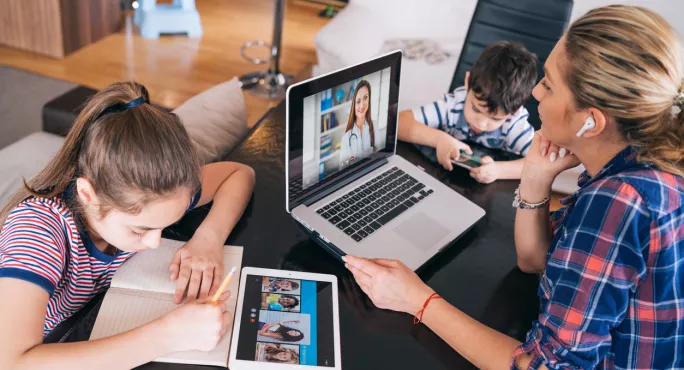It will be up to local authorities and multi-academy trusts to decide which pupils are eligible for free laptops and tablets during the school shutdown, the government has said.
The Department for Education announced on Sunday that “disadvantaged” children in Year 10, together with those with social workers and those who are care-leavers, will be given free devices in a bid to make remote learning during lockdown easier.
Asked how it is defining “disadvantaged” children, the DfE told Tes that responsible bodies, such as local authorities, multi-academy trusts and diocese, will be in charge of allocating the devices to schools.
Background: Free laptops for disadvantaged pupils
Coronavirus: Williamson backs national online academy
Exclusive: National edtech hub ‘needed to close gap’
For single academies, the DfE will be making the decision itself. But when asked how it would be defining disadvantage, the department would only state that the devices would go to “disadvantaged pupils”.
Coronavirus: Supporting disadvantaged pupils
In an online blog, the department states that these responsible bodies will be “best placed” to judge which children do not have access to a device or internet connection.
It adds that “many of these [children] will be eligible for free school meals”.
The DfE told Tes that schools should only apply directly to the government where they are, for all intents and purposes, their own responsible body - such as single academy trusts.
It added that it will soon be confirming how local authorities, MATs and other relevant organisations can request a device.
Despite repeated questioning by Tes, the DfE is yet to reveal how much it intends to invest in the scheme. However, it has said it will be in the millions.
It is also yet to confirm how many children it hopes to support.
The devices will not be available to pupils who already have access to one.
Geoff Barton, general secretary of the Association of School and College Leaders, said: “We think the system being used by the Department for Education for distributing free laptops to disadvantaged children is the best way of doing this in the circumstances.
“The key ingredient is speed because these young people need these devices as soon as possible, so getting them out to trusts and local authorities, and allowing them to administer allocation, will be the best way of achieving this goal.
“It will clearly require extra administration, but schools will already know which pupils don’t have online access.
“Our main concern is that the allocation to disadvantaged youngsters is only to those in Year 10 at present, and we would like to see the scheme extended to other age groups.”
A spokesperson for the Local Government Association added: “We will be looking to work with the department to ensure the scheme is fully funded and that councils have flexibility to meet the needs of local children.”
The DfE has been approached for comment.




